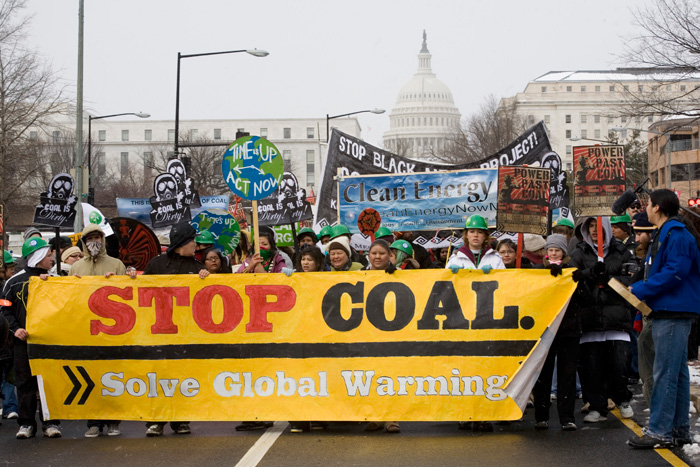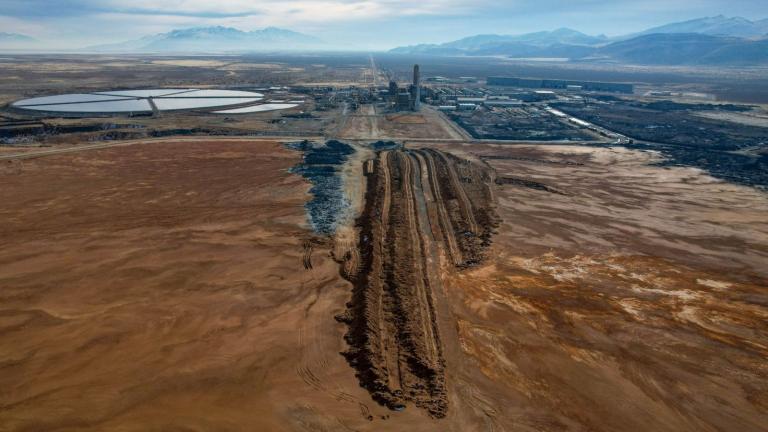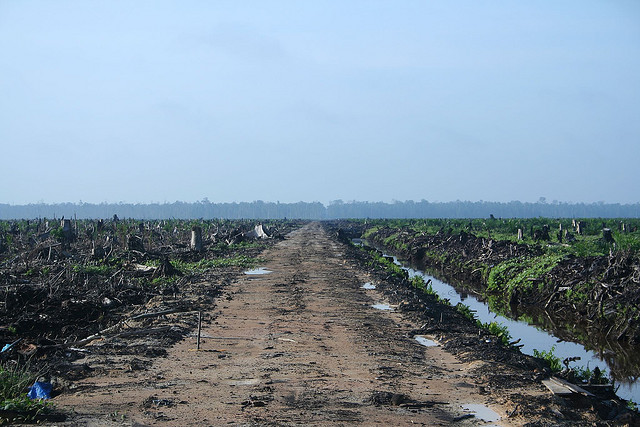 Oil palm concession in Indonesia. Photo: Hayden
Oil palm concession in Indonesia. Photo: Hayden
Potential good news for orangutans, tigers, and the climate: Indonesian palm oil giant Golden Agri-Resources (GAR), a subsidiary of all-round planet pulper Sinar Mas (palm oil, illegal logging, coal) is promising not to destroy forests and ultra carbon-rich peatlands for palm oil.
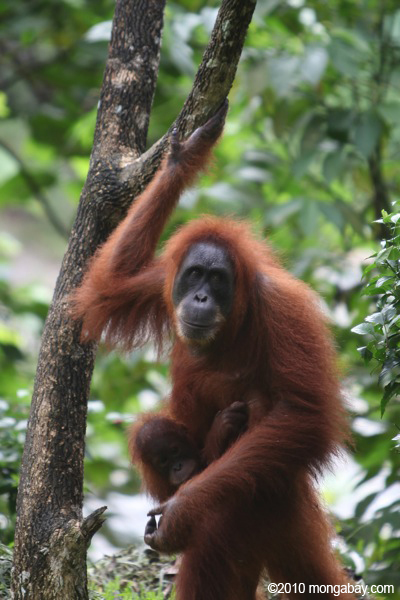 Photo: Rhett A. Butler, MongaBayHere’s the skinny from Rolf Skar of Greenpeace, whose multi-year campaign targeting Sinar Mas seems to paying dividends:
Photo: Rhett A. Butler, MongaBayHere’s the skinny from Rolf Skar of Greenpeace, whose multi-year campaign targeting Sinar Mas seems to paying dividends:
This move by GAR would have been almost unimaginable just a year ago, and — if properly implemented — could be an historic step towards full forest and peatland protection in Indonesia. It could also be enormously important for the survival of endangered wildlife like the orangutan, Sumatran tiger, and rhinoceros that have been pushed toward extinction as their forest habitat disappeared at a record rate.
Follow-through will be needed — and soon. Sinar Mas has a terrible record of not living up to its commitments and then deceiving the public about its efforts. Just this August, Sinar Mas’ own auditor publicly repudiated the company’s claims that it had not destroyed ultra carbon-rich peatlands for palm oil. Sinar Mas’ logging unit undertook similar deception — denying that it was clear cutting hundreds of thousands of rainforests, including some of the last forests with tigers and elephants in Sumatra, until satellite evidence proved otherwise. World Wildlife Fund had previously withdrawn from an agreement that involved APP ending its use of fiber from natural forest — when the company insisted it had to destroy 180,000 hectares of forest to “become sustainable.” In other words, it’s extremely hard to trust Sinar Mas — despite their multi-million dollar greenwashing campaign attempting to convince Americans otherwise.
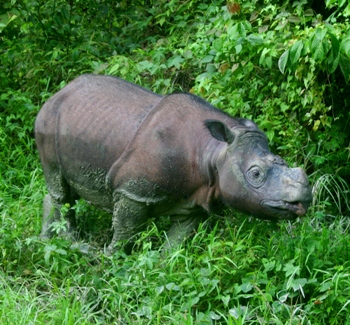 Only approximately 200 Sumatran rhinos remain in the wild. Photo: Jeremy Hance, MongaBayNonetheless, Greenpeace is giving Sinar Mas’ palm oil unit GAR the temporary benefit of the doubt, and is for now halting efforts to get additional companies to join giants like Unilever and Nestle in efforts to stop buying palm oil from Sinar Mas (though best of all would be for companies to use sustainable, healthier alternatives like canola oil rather than get mixed up in the very dirty palm oil business). They and other rainforest advocates are hoping this announcement causes the Indonesian government to get considerably more serious about its announced two year moratorium on deforestation – which is being at least undercut in spirit by three million hectares of new concessions granted the day before the moratorium was supposed to go into force. If Sinar Mas really has turned over a new leaf (and I’m not holding my breath), it could also mean significant lessening of the unholy and corrupting pressures on Indonesian government officials to authorize wholesale deforestation — leading to a new day for Indonesia’s paradise forests and their wildlife.
Only approximately 200 Sumatran rhinos remain in the wild. Photo: Jeremy Hance, MongaBayNonetheless, Greenpeace is giving Sinar Mas’ palm oil unit GAR the temporary benefit of the doubt, and is for now halting efforts to get additional companies to join giants like Unilever and Nestle in efforts to stop buying palm oil from Sinar Mas (though best of all would be for companies to use sustainable, healthier alternatives like canola oil rather than get mixed up in the very dirty palm oil business). They and other rainforest advocates are hoping this announcement causes the Indonesian government to get considerably more serious about its announced two year moratorium on deforestation – which is being at least undercut in spirit by three million hectares of new concessions granted the day before the moratorium was supposed to go into force. If Sinar Mas really has turned over a new leaf (and I’m not holding my breath), it could also mean significant lessening of the unholy and corrupting pressures on Indonesian government officials to authorize wholesale deforestation — leading to a new day for Indonesia’s paradise forests and their wildlife.
